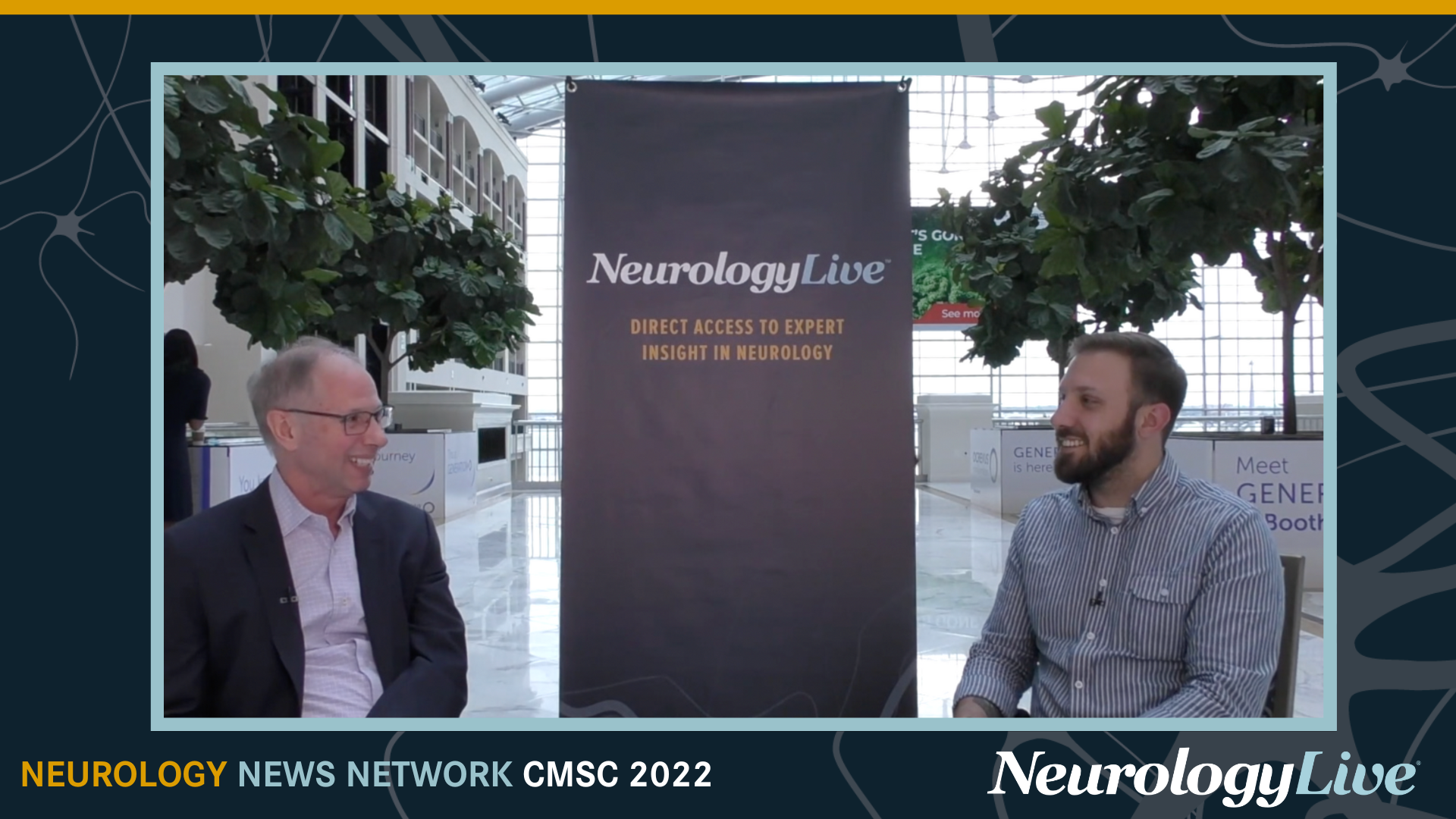
State of Stem Cell Transplantation for Multiple Sclerosis

Jeffrey Cohen, MD, shared his perspective on the current use and study of stem cells for the treatment of multiple sclerosis, which he covered in the CMSC Presidential Lecture at the 2022 annual meeting.
WATCH TIME: 5 minutes
For more coverage from CMSC 2022, click here . A transcript of the conversation is below.
Matt Hoffman: I’m here with Dr. Jeffrey Cohen. Thank you, sir, very much for sitting down with me here at CMSC.
Jeffrey Cohen, MD: Thanks for inviting me.
Matt Hoffman: So, we’re here to talk about a pretty hot topic: your presidential lecture on stem cell transplantation and [multiple sclerosis]. Broadly, to start, for maybe anyone who didn't get a chance to check out the lecture, what was it that you covered? Then we can dive into where we are with stem cell transplantation?
Jeffrey Cohen, MD: Well, so I started by clarifying that there are many kinds of cell-based therapy approaches—stem cell therapies—ones for repair, and then anti-inflammatory strategies. I focused on the ladder, typified by hematopoietic stem cell transplantation. Then, my talk was intended to be a high-level summary of the procedure—which is rather complicated—the reports of benefits that have been published, the potential risks, and then ongoing studies to try to place hematopoietic stem cell transplantation in our overall treatment regimen.
Matt Hoffman: So far—as you said, you went over the data—what do we know at this point?
Jeffrey Cohen, MD: In aggregate, there have been quite a few published studies, and when you put them all together, they indicate that hematopoietic stem cell transplantation can be quite effective in multiple sclerosis. It, probably, is more effective than our currently available, disease-modifying medications. But it has some risks. It's, in fact, a complicated procedure with lots of potential [adverse] effects. Thankfully, they're mostly associated with the transplant itself, and then once patients recover, which takes a month or two, then it's generally pretty safe and most people don't require further disease-modifying therapy.
It's really effective for that aspect of the disease—for controlling attacks and controlling MRI activity. Although, there still are a number of open questions. One would be the optimal protocol for transplantation. Turns out that every transplant physician has their own recipe. There's still a lot of debate about the best way to do it. Secondly, who is the most appropriate candidate for it, and who is most likely to benefit and least likely to have harm? And then finally, is it effective for the processes that cause progression, which is a big unmet need, and it's still uncertain to what extent this kind of transplant will be helpful in that setting.
Matt Hoffman: And obviously, the answer to that question would then determine whether or not other treatments would still have to be applied?
Jeffrey Cohen, MD: Right. It also would help us select the appropriate patient. It's a risky procedure and it’s expensive, so we only want to do it when it's going to be successful.
Matt Hoffman: How far away are we from answering some of those unanswered questions? I'm sure research is ongoing to look into that, but, pulling out your telescope to the future, when do you think we might, ballpark, have some of those answers?
Jeffrey Cohen, MD: I think most people have decided that in a really active patient who has continued disease activity, despite the available options, the transplants are reasonable consideration now. Sometimes it's a struggle to get it paid for by insurance, but I think more and more people are feeling comfortable with referring people for transplants in that setting.
What we're looking to do with some of the ongoing studies is to promote transplant as an option earlier in the disease before people have exhausted all their options. And to answer that, there are a number of ongoing studies, one of which is the BEAT-MS trial (NCT04047628)—in which I'm the lead investigator—which is seeking to compare transplants to the currently available high-efficacy therapies and to show, hopefully, that transplants are an option [compared with] those therapies. That it's more effective, reasonably safe, and actually within a year or two, cost-effective. We're probably several years away from getting that answer.
Transcript edited for clarity.
Newsletter
Keep your finger on the pulse of neurology—subscribe to NeurologyLive for expert interviews, new data, and breakthrough treatment updates.










